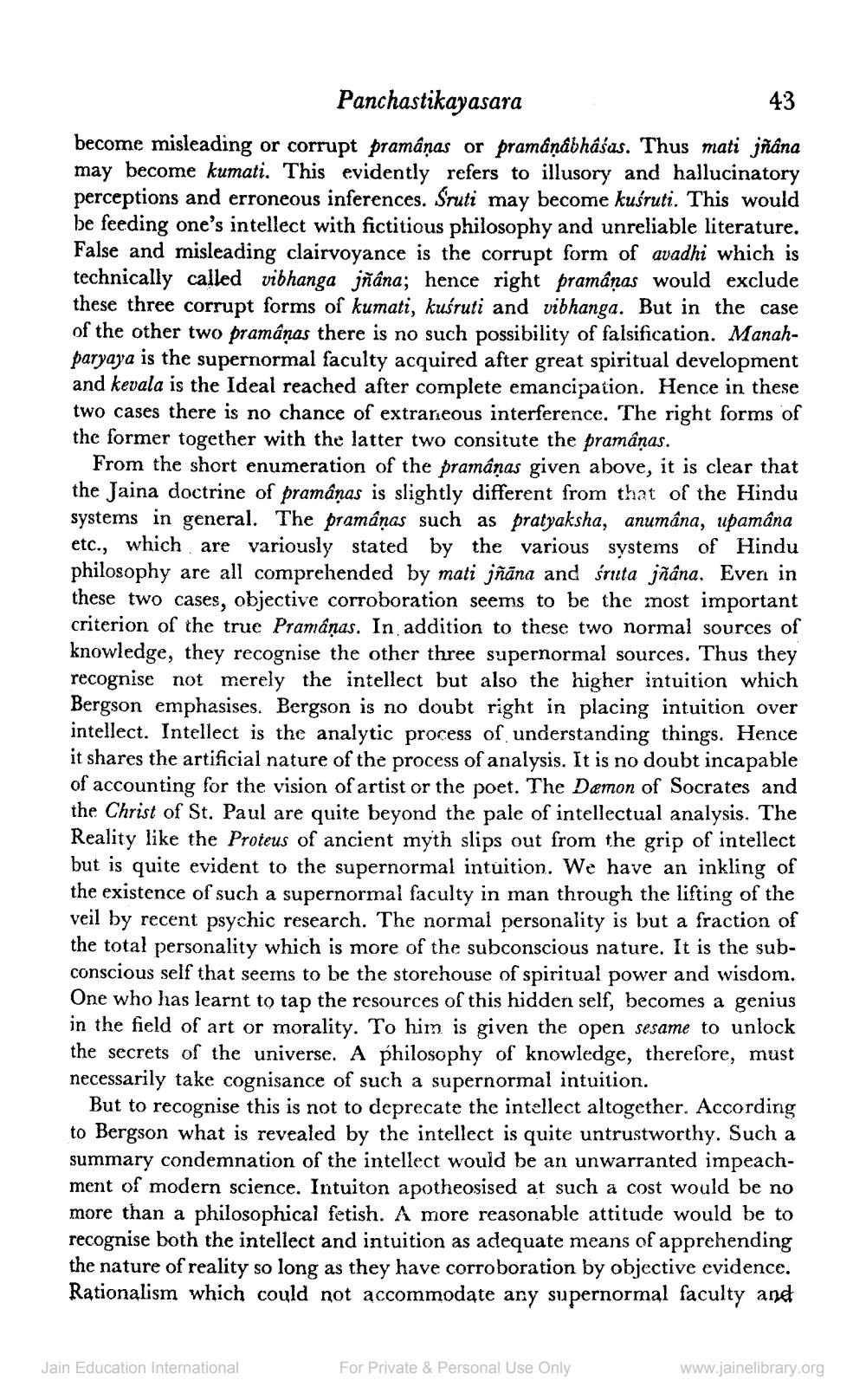________________
43
Panchastikayasara become misleading or corrupt pramâņas or pramåņábháśas. Thus mati jñana may become kumati. This evidently refers to illusory and hallucinatory perceptions and erroneous inferences. Sruti may become kuśruti. This would be feeding one's intellect with fictitious philosophy and unreliable literature. False and misleading clairvoyance is the corrupt form of avadhi which is technically called vibhanga jñana; hence right pramâņas would exclude these three corrupt forms of kumati, kuśruti and vibhanga. But in the case of the other two pramâņas there is no such possibility of falsification. Manahparyaya is the supernormal faculty acquired after great spiritual development and kevala is the Ideal reached after complete emancipation. Hence in these two cases there is no chance of extraneous interference. The right forms of the former together with the latter two consitute the bramânas
From the short enumeration of the pramâņas given above, it is clear that the Jaina doctrine of pramâņas is slightly different from that of the Hindu systems in general. The pramâņas such as pratyaksha, anumâna, upamâna
h are variously stated by the various systems of Hindu philosophy are all comprehended by mati jñāna and śruta jõâna. Even in these two cases, objective corroboration seems to be the most important criterion of the true Pramâņas. In addition to these two normal sources of knowledge, they recognise the other three supernormal sources. Thus they recognise not merely the intellect but also the higher intuition which Bergson emphasises. Bergson is no doubt right in placing intuition over intellect. Intellect is the analytic process of understanding things. Hence it shares the artificial nature of the process of analysis. It is no doubt incapable of accounting for the vision of artist or the poet. The Demon of Socrates and the Christ of St. Paul are quite beyond the pale of intellectual analysis. The Reality like the Proteus of ancient myth slips out from the grip of intellect but is quite evident to the supernormal intuition. We have an inkling of the existence of such a supernormal faculty in man through the lifting of the veil by recent psychic research. The normal personality is but a the total personality which is more of the subconscious nature. It is the subconscious self that seems to be the storehouse of spiritual power and wisdom. One who has learnt to tap the resources of this hidden self, becomes a genius in the field of art or morality. To him is given the open sesame to unlock the secrets of the universe. A philosophy of knowledge, therefore, must necessarily take cognisance of such a supernormal intuition.
But to recognise this is not to deprecate the intellect altogether. According to Bergson what is revealed by the intellect is quite untrustworthy. Such summary condemnation of the intellect would be an unwarranted impeachment of modern science. Intuiton apotheosised at such a cost would be no more than a philosophical fetish. A more reasonable attitude would be to recognise both the intellect and intuition as adequate means of apprehending the nature of reality so long as they have corroboration by objective evidence. Rationalism which could not accommodate any supernormal faculty and
Jain Education International
For Private & Personal Use Only
www.jainelibrary.org




